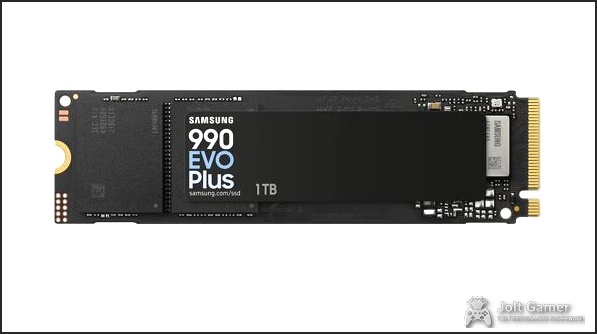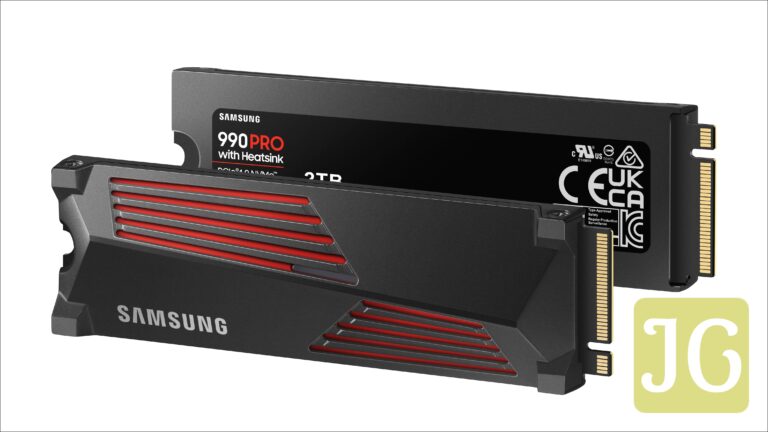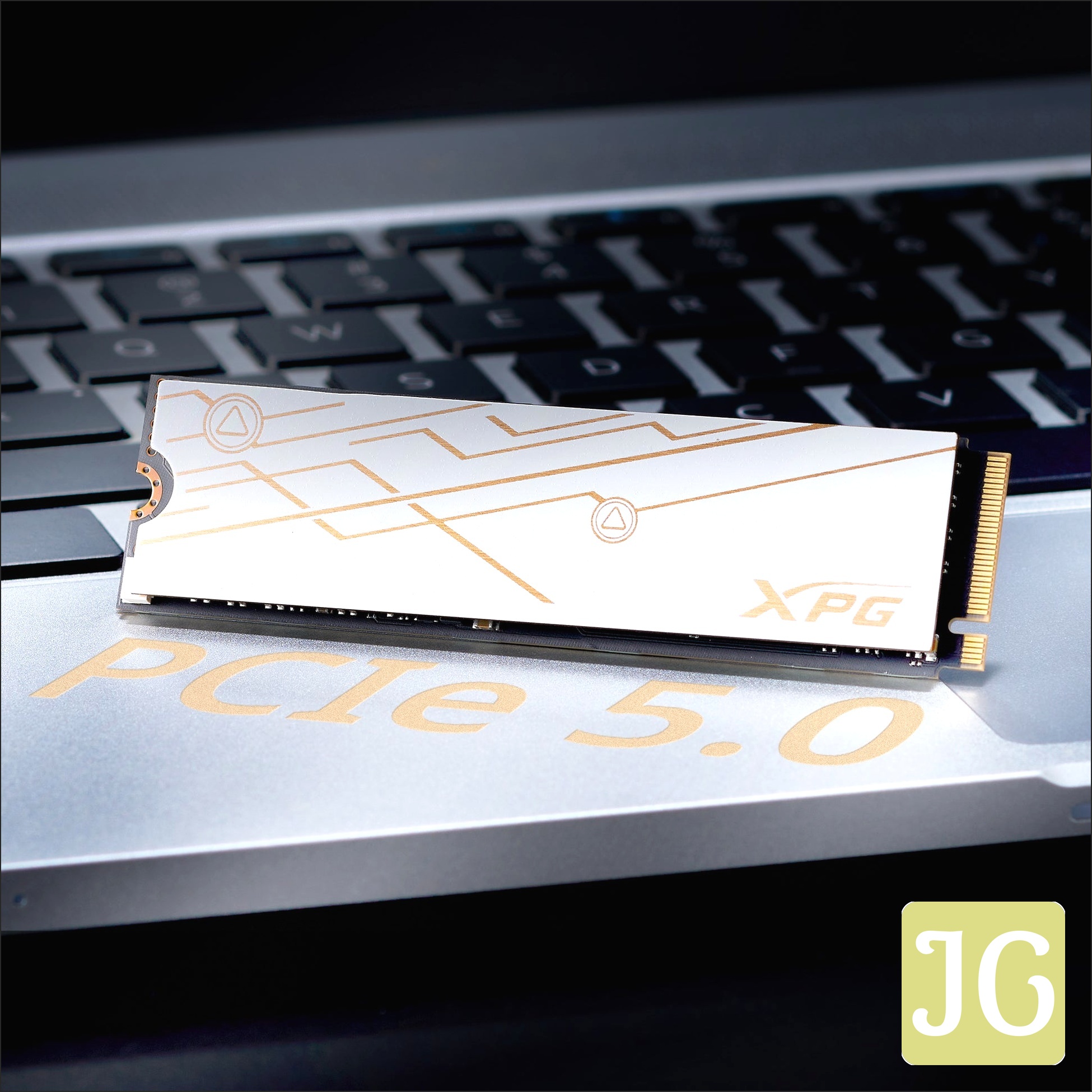
Key Takeaways
- The ADATA XPG Mars 980 Blade pushes the boundaries of PCIe Gen5, offering blazing sequential speeds up to 14,000 MB/s read and 13,000 MB/s write.
- Despite its raw power, real-world gaming performance gains over high-end Gen4 SSDs are currently incremental, prompting a value-versus-bleeding-edge consideration for most gamers.
- Powered by the highly efficient Silicon Motion SM2508 controller, it boasts a “Cooling-Free Design” with remarkably low power consumption (under 7W), making it an exceptional choice for compact systems like gaming laptops and the PS5.
- While its premium price point positions it as a significant investment, the Mars 980 Blade offers robust future-proofing and is specifically optimized for demanding AI workloads and next-generation applications.
The Gen5 Frontier: What the Mars 980 Blade Brings to Your Rig
The relentless march of PC storage technology continues, and with the advent of PCIe Gen5, the very definition of “fast” is being rewritten. ADATA’s XPG Mars 980 Blade stands at the vanguard of this new era, promising a revolution in data access. Yet, for many in the JoltGamer community, the question remains: beyond the impressive spec sheet, what tangible benefits does this cutting-edge NVMe SSD deliver for today’s gamers, tomorrow’s content creators, and the power users pushing system limits? In this definitive guide, we will meticulously dissect its underlying technology, rigorously benchmark its performance, evaluate its real-world impact, and weigh its value against the burgeoning competition, providing the answers you need to make an informed upgrade decision.
Unpacking the Blade: Design, Specs, and Core Technology
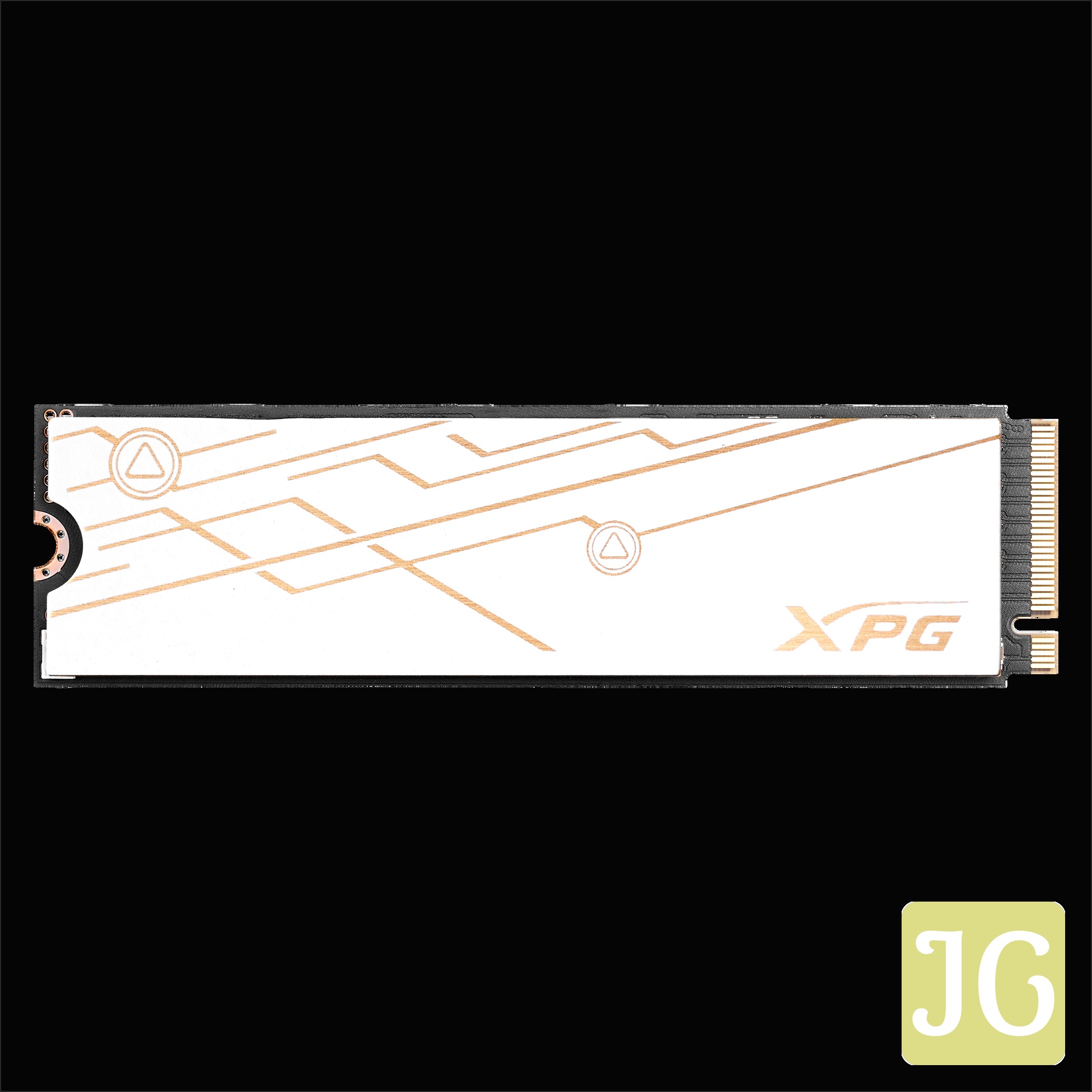
ADATA XPG Mars 980 Blade Key Specifications
| Feature | Value |
|---|---|
| Interface | PCIe Gen5 x4, NVMe 2.0 |
| Controller | Silicon Motion SM2508 (6nm) |
| NAND Flash | 232-layer 3D TLC NAND |
| Capacities | Up to 4TB (1TB, 2TB, 4TB models) |
| Sequential Read (PC/Laptop) | Up to 14,000 MB/s |
| Sequential Write (PC/Laptop) | Up to 13,000 MB/s |
| Sequential Read (PS5) | Up to 6,100 MB/s (6,500 MB/s reported elsewhere) |
| Random Read/Write (4K IOPS) | Up to 2,000K / 1,650K |
| Form Factor | M.2 2280 |
| MTBF | 1,600,000 hours (1TB model) |
| TBW | 740TB (1TB model) |
| Warranty | 5-year limited |
| Power Consumption (Controller) | 3.5W (SM2508) |
| Max SSD Power Consumption | 7W |
- PCIe Gen5 x4 & NVMe 2.0: This is the latest and fastest interface, unlocking unprecedented bandwidth for data transfer.
- Silicon Motion SM2508 Controller: Engineered on TSMC’s advanced 6nm process, this controller is the brains behind the Blade’s exceptional efficiency and performance.
- 232-Layer 3D TLC NAND: Utilizing cutting-edge flash memory, the drive achieves high storage density and blistering speeds.
- Cooling-Free Design: A revolutionary approach that allows for stable, high-performance operation in compact systems without the need for bulky, active heatsinks.
- Broad Compatibility: Seamlessly integrates with the newest Intel and AMD platforms, and is fully certified as PS5-ready for console expansion.
- Advanced Data Protection: Features like SLC Caching, DRAM Cache Buffer, LDPC ECC, and Pyrite encryption ensure data integrity, longevity, and robust security.
Performance Unleashed: Speed, Benchmarks, and Real-World Impact
The defining characteristic of any Gen5 SSD is its sheer, unadulterated speed, and the Mars 980 Blade delivers. With sequential read speeds rocketing up to 14,000 MB/s and write speeds hitting an astonishing 13,000 MB/s, it theoretically doubles the performance ceiling of even the fastest PCIe Gen4 drives and dwarfs older Gen3 models by a factor of eight. These figures are undeniably impressive on paper, painting a picture of near-instantaneous load times and unparalleled data throughput. However, a critical question echoes through the JoltGamer community: how much of this raw, bleeding-edge speed translates into a genuinely noticeable difference for the average gamer or even a demanding power user in today’s computing landscape?
ADATA XPG Mars 980 Blade: Sequential Speed Comparison
14000 MB/s
13000 MB/s
7000 MB/s
6000 MB/s
3500 MB/s
3000 MB/s
Sure, 12 GB/s sounds insane on paper, but is my game really going to load that much faster than on my Gen 4 drive? Probably not enough to justify the upgrade for most of us.
While synthetic benchmarks undeniably showcase the Mars 980 Blade’s immense speed, the current reality for PC gaming is that most titles are not yet engineered to fully exploit PCIe Gen5’s colossal bandwidth. Load times may indeed see marginal improvements over a premium Gen4 drive, but for many, the ‘instant’ feeling is often already a reality with current-generation storage. The Mars 980 Blade truly comes into its own in scenarios demanding the absolute fastest data handling: think massive file transfers for video editing, complex data analytics, or the intensive I/O required by modern AI workloads. Crucially, its seamless PS5 compatibility makes it an outstanding console expansion. Here, it delivers up to 6,100 MB/s (with some reports even reaching 6,500 MB/s), ensuring a buttery-smooth, no-lag experience for even the most graphically intensive AAA titles, though Sony rightly advises that not all games will fully leverage these peak speeds to match the console’s internal SSD.
The Thermal Frontier: Cooling-Free Design & Controller Efficiency
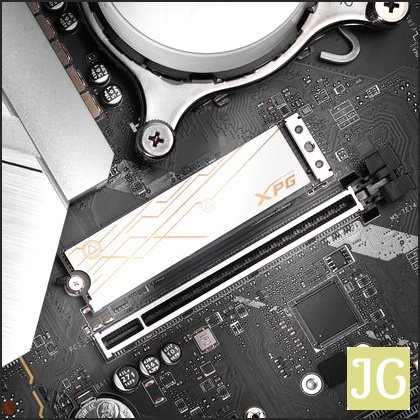
Image Annotations
Ultra-compact M.2 2280 form factor, designed for tight spaces like laptops and PS5.
Efficient 6nm Silicon Motion SM2508 controller, enabling ‘Cooling-Free Design’ due to low power consumption.
The Achilles’ heel of many early PCIe Gen5 SSDs has been their voracious thermal demands, often necessitating unwieldy, actively cooled heatsinks to prevent performance throttling. The ADATA XPG Mars 980 Blade, however, charts a different course with its innovative “Cooling-Free Design.” This is a direct testament to the remarkable efficiency of its Silicon Motion SM2508 controller. Fabricated on TSMC’s cutting-edge 6nm process, the SM2508 controller itself sips power at a mere 3.5 watts, contributing to a maximum full SSD power consumption of just 7 watts. This isn’t just a minor improvement; it makes the Mars 980 Blade up to 1.7 times more energy-efficient than other contemporary PCIe Gen5 controllers. This superior power management allows the drive to maintain stable, high-speed performance even in thermally constrained environments like gaming laptops and the PS5, entirely circumventing the need for cumbersome, additional cooling solutions – a direct and welcome answer to the community’s widespread “Worry” about Gen5 thermals.
ADATA XPG Mars 980 Blade: Pros & Cons
Pros
- Blazing PCIe Gen5 speeds (up to 14,000 MB/s read)
- Highly power-efficient Silicon Motion SM2508 controller
- Compact ‘Cooling-Free Design’ ideal for laptops & PS5
- Excellent future-proofing for next-gen games & AI workloads
- Robust durability features and 5-year warranty
Cons
- High price point compared to Gen4 alternatives
- Limited real-world gaming performance gains for current titles
- PS5 speeds, while good, may not fully match console’s internal SSD for all games
The Competitive Landscape: Gen5 Rivals and Value Alternatives
PCIe Gen5 & High-End Gen4 SSD Comparison (1TB/2TB models)
| Model | Interface | Capacity (Max) | Seq. Read (MB/s) | Seq. Write (MB/s) | Controller | Key Feature / Price Note |
|---|---|---|---|---|---|---|
| ADATA XPG Mars 980 Blade | PCIe Gen5 x4 | 4TB | 14,000 | 13,000 | SM2508 | Cooling-Free Design, PS5 compatible, ~$130 (1TB) |
| Crucial T705 | PCIe Gen5 x4 | 4TB | 14,500 | 12,700 | Phison E26 | Top-tier speed, often requires heatsink |
| Samsung 9100 PRO | PCIe Gen5 x4 | 4TB | 14,700 | 13,400 | Samsung | Samsung’s first Gen5, high performance |
| Kingston FURY Renegade G5 | PCIe Gen5 x4 | 4TB | 14,800 | 14,000 | SM2508 | High-performance gaming focus, 6nm |
| KIOXIA EXCERIA PRO | PCIe Gen4 x4 | 2TB | 7,300 | 6,400 | Kioxia | Excellent Gen4 value, robust construction |
The PCIe Gen5 SSD market is a rapidly expanding and intensely competitive battleground, with formidable rivals from industry giants like Crucial, Samsung, and Kingston. While the Mars 980 Blade admirably holds its own in terms of raw performance and truly distinguishes itself with its exceptional thermal efficiency, its current price point—for instance, around $129.99 for a 1TB model—firmly places it in the premium tier. This pricing strategy directly feeds into the “Frustration” many users feel: does the incremental speed advantage over a top-tier Gen4 drive truly justify the significantly higher investment? For a considerable segment of the market, particularly those adhering to a budget or operating systems not yet fully optimized for Gen5, a high-performance Gen4 SSD like the KIOXIA EXCERIA PRO still offers outstanding performance at a far more accessible price. However, for enthusiasts building the absolute bleeding-edge system, or those prioritizing maximum future-proofing above all else, the Mars 980 Blade presents a compelling and well-engineered proposition.
Beyond Gaming: AI, Workstations, and the Future of Storage
While gamers represent a significant audience, the profound capabilities of PCIe Gen5 SSDs, particularly the Mars 980 Blade, extend far beyond merely accelerating game load times. Its immense bandwidth and impressive random IOPS make it an ideal backbone for highly demanding professional applications such as complex AI workloads, intensive data analytics, and high-resolution content creation, where vast datasets are constantly accessed and manipulated. Indeed, Silicon Motion, the architect behind the efficient SM2508 controller, specifically engineered its design to meet the burgeoning demands of AI function PCs. As the computing landscape inexorably shifts towards increasingly data-intensive applications and as operating systems and games prepare to fully embrace technologies like DirectStorage, the Mars 980 Blade offers a substantial degree of future-proofing, ensuring your system remains a high-performance workhorse for many years to come.
The JoltGamer Verdict: A Blade on the Bleeding Edge
The ADATA XPG Mars 980 Blade is, without question, a technological marvel. It delivers raw PCIe Gen5 performance that genuinely redefines what “fast” means for storage. Its truly innovative “Cooling-Free Design,” a direct benefit of the remarkably efficient SM2508 controller, positions it as an exceptional, hassle-free choice for power users with laptops and PS5 consoles who demand top-tier speeds without the thermal compromises. While the immediate, tangible performance uplift for current PC gaming might be incremental, its explicit optimization for AI workloads and the undeniable promise of future DirectStorage-enabled titles make it a powerful statement of intent. For those constructing a no-compromise, future-ready system, or seeking the ultimate PS5 storage expansion, the Mars 980 Blade stands as a compelling, albeit premium, investment in the next generation of digital storage.
Frequently Asked Questions About the ADATA XPG Mars 980 Blade & Gen5 SSDs
- Is the ADATA XPG Mars 980 Blade worth it for gaming?
- For current PC gaming, the performance gains over a high-end Gen4 SSD are often marginal. However, for future-proofing your system, for demanding AI workloads, or as a high-performance PS5 expansion, its speed and thermal efficiency make it a very strong contender.
- Does the Mars 980 Blade need a heatsink?
- No, it does not. Thanks to its highly efficient Silicon Motion SM2508 controller and 6nm manufacturing process, it features a unique ‘Cooling-Free Design’ that ensures stable performance even in compact spaces without requiring additional, bulky heatsinks.
- What is the difference between PCIe Gen4 and Gen5 SSDs?
- PCIe Gen5 SSDs offer double the theoretical bandwidth of Gen4 SSDs, translating to sequential read speeds of up to 14,000 MB/s compared to around 7,000 MB/s for Gen4. While Gen5 is significantly faster on paper, current applications and games may not fully utilize these increased speeds, making Gen4 a more cost-effective option for many users today.
- Is the ADATA XPG Mars 980 Blade compatible with PS5?
- Yes, it is fully compatible and specifically designed to fit perfectly into the PS5’s internal drive expansion slot. It offers excellent storage expansion and delivers smooth gaming performance for AAA titles, though Sony does note that not all games may fully match the console’s built-in SSD performance, even with a drive exceeding official speed standards.
- What is the Silicon Motion SM2508 controller?
- The SM2508 is a high-performance, energy-efficient PCIe Gen5 x4 NVMe SSD controller, built on TSMC’s advanced 6nm process. It’s renowned for its low power consumption (3.5W for the controller, 7W max for the full SSD) and its capability to deliver top-tier Gen5 speeds while effectively minimizing heat generation, enabling the ‘Cooling-Free Design.’
Sources & Further Reading
- ADATA XPG Official Product Pages
- Silicon Motion Official Announcements & Product Briefs (SM2508)
- Kingston FURY Renegade G5 Press Release
- PC Perspective Storage Reviews (Crucial T705, Samsung 9100 PRO, ADATA SE920)
- TweakTown ADATA XPG Mars 980 Blade Review
- Tech Land BD PC Build Receipt (for pricing context)
- TopPC.ee System Configurations
- Novachips.com Industry News
- Scribd.com ‘PC Build Techland (3) | PDF’



